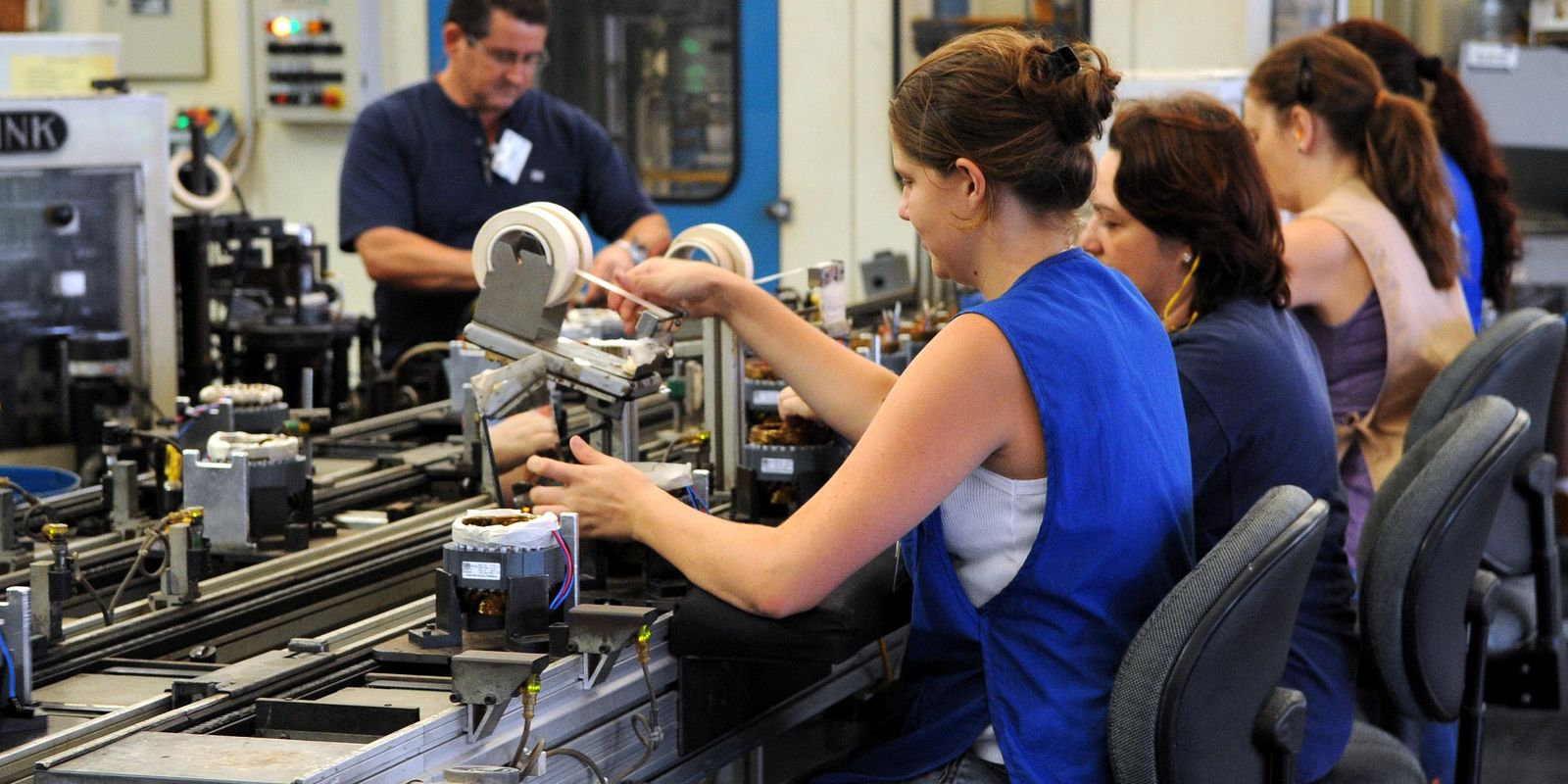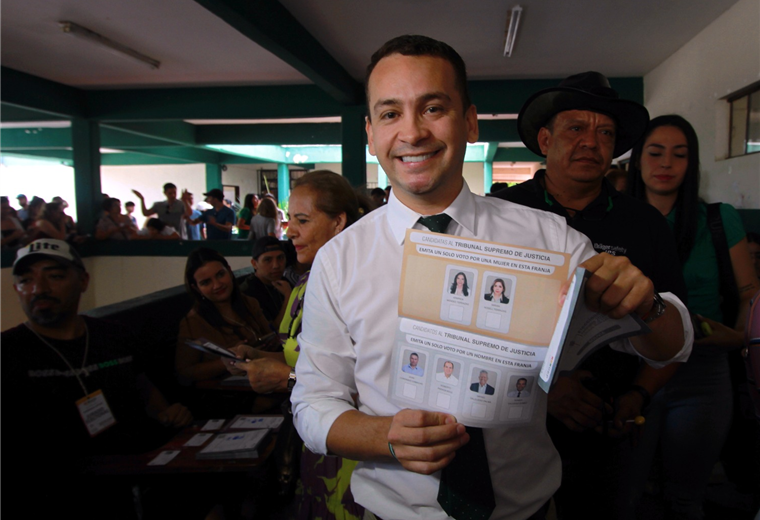Three in ten young Brazilians between the ages of 18 and 27 have their greatest professional desire to have their own business or company. This is what a survey released this Thursday (19) showed and carried out by the Center for Society, University and Science Studies (Sou_Ciência) of the Federal University of São Paulo (Unifesp), in partnership with the IDEIA Research Institute.
According to research, the level of education influences the interest in entrepreneurship. The higher the level of education, the greater the interest in having your own company. Young black people (31%) and mixed race (32%) are also the most interested in having their own business.
“The research surprises us by the fact that we have a significant number of young people employed with CLT [Consolidação das Leis do Trabalho] – around 42% of young people in this condition – but who do not want to remain as CLT employees. There is a movement towards other forms of work”, explained Pedro Arantes, professor at the Federal University of São Paulo (Unifesp) and researcher at the Center for Society, University and Science Studies (Sou_Ciência).
Other young people interviewed also revealed the desire to work as a public servant (18%), live off income or investments (18%), practice their profession as a self-employed person (12%) and work as a formal employee (11%). And around 8% of them also revealed their desire not to work.
In an interview with Brazil Agencythe researcher revealed that the survey reveals that “youth do not want to be working class”. “The work card is not an object of desire. And among self-employed people and entrepreneurs, there is a clear desire for them to run their own business or their own lives, whether as individuals-legal entities or legal-business entities”, he stated.
Still according to this study, the political position of these young people revealed contrasts: those who identified themselves as left-wing are more interested in being a public servant (28%). Unlike right-wing young people, who are the most interested in having their own business (38%).
Called What Young Brazilians Think, the survey interviewed 1,034 young people from all regions of the country, who answered 55 questions, asked via cell phone, between September 16 and 23, 2024. The margin of error is 3 percentage points, with a 95% confidence interval.
Corruption
The survey also heard from young people on several other topics. When asked, for example, about 13 topics present in the daily lives of Brazilians, the majority of them responded that corruption is the country’s main problem, with a rate of 34% of responses. In the survey carried out in 2021, corruption ranked sixth in this criterion, with 26%. That year, hunger and poverty came top, with 66% of responses.
In both the current and previous surveys, violence and lack of security appear in second place. This year, 30% of responses pointed to violence as Brazil’s main problem.
“Young people are the social group that is most on the streets, most exposed and most easily victims of violence, surveillance and repression. Therefore, he has a more acute perception of violence and recognizes this as the second main problem [do país]”, said the researcher.
Corruption is a greater concern for men, upper class, evangelicals or those who declare themselves right-wing or center-right. Violence and lack of security are more of a concern to women, people from lower classes, people from the Northeast, Catholics and people who declare themselves more on the left or center-left.
Next come health (26%), the environmental and climate crisis (24%), education (23%), unemployment (23%), inflation and the cost of living (22%), hunger and poverty (18%), racism and discrimination (14%), fake news and misinformation (13%), basic sanitation and housing (11%), attacks on democracy (6%) and disputes over land (3%).
According to the research, the topic of the environmental, climate and water crisis was the one that grew the most compared to the 2021 study. Four years ago, this topic occupied tenth place, with 7% of responses. Now it has risen to fourth position, a growth of 243%.
Political position
The majority of those interviewed (67% of the total) declare that they are neither right-wing nor left-wing, which indicates that young Brazilians are far from Brazilian polarization. Around 17% of those interviewed declared themselves to be right-wing or center-right, 16% as left-wing or center-left, 9% as center-left. But a large number of young people (31%) reported that they had never had a political position. Another 7% say they once had a political position and currently no longer have one. The remainder (20%) preferred not to respond.
“Two thirds of young people, who we call neither-nor – neither left nor right – are a large mass and do not place the ideological issue as a priority in positioning themselves,” said Arantes. “This apparent depoliticization or lack of interest in a clear ideological position perhaps indicates that young people are interested in thinking about the world outside this zone of open conflict that politics in Brazil has become.”
Respondents were also asked about their party political affinities considering the scenario with the two biggest adversaries in national political life today. As a result, 23% of those interviewed declared themselves Bolsonaro supporters or closer to the thoughts of former president Jair Bolsonaro, while 28% declared themselves PT supporters or close to the ideals of current president Luiz Inácio Lula da Silva.
The most significant segment, however, was those who did not position themselves in any of these trends: 33%. Those who did not know or preferred not to answer totaled 16%.
On the other hand, said Arantes, the research demonstrated that there is a strong polarization between young people who recognize themselves as being on the right or on the left in relation mainly to behavioral or social issues. The recognition of the right to civil marriage between people of the same sex, for example, has the support of 80% of leftists interviewed in the survey, while, among rightists, this rate drops to 27%.
The expansion of civic-military schools has the support of 68.6% of young people on the right, while among those on the left, approval is 26%. In relation to quotas in public universities, the support of leftists for maintaining or expanding this policy represents twice that of rightists: 66% to 33%.
Anxiety and depression
Mental health problems, such as anxiety and depression, are by far the ones that most affect young Brazilians, highlighted by 38% of those interviewed. This problem is a consensus among the different groups interviewed by the research, whether young people from the left or right, men or women, with higher or lower income, Catholics, atheists or evangelicals, whites, blacks or mixed race, university or non-university students, or from any region of the country.
“What most affects young people in Brazil today are the problems of anxiety and depression and other associated mental health problems that may be related to the pandemic, hate speech, persecution of minorities, intolerance and religious fundamentalism, in addition to technology and hyper-exposure. But it also has to do with the unregulated world of work, in which people do not have clearly established journeys and goals and suffer more types of pressure”, said Arantes.
“And we noticed that young people with more education, university students, are the ones who point out this as the biggest problem. This is also associated with pressure on academic life and professional expectations that can be frustrated by the crisis in the world of work”, he added.
Next comes drug use (28%), violence and crime (25%), addiction to cell phones, social networks or games (24%), unemployment and precarious work (23%) and a lack of perspective for the future ( 22%), among others.
In the previous survey, young people highlighted unemployment and precarious work (44%) and a lack of future prospects (33%) as their biggest problems. Depression and anxiety occupied third position, with 32%.















